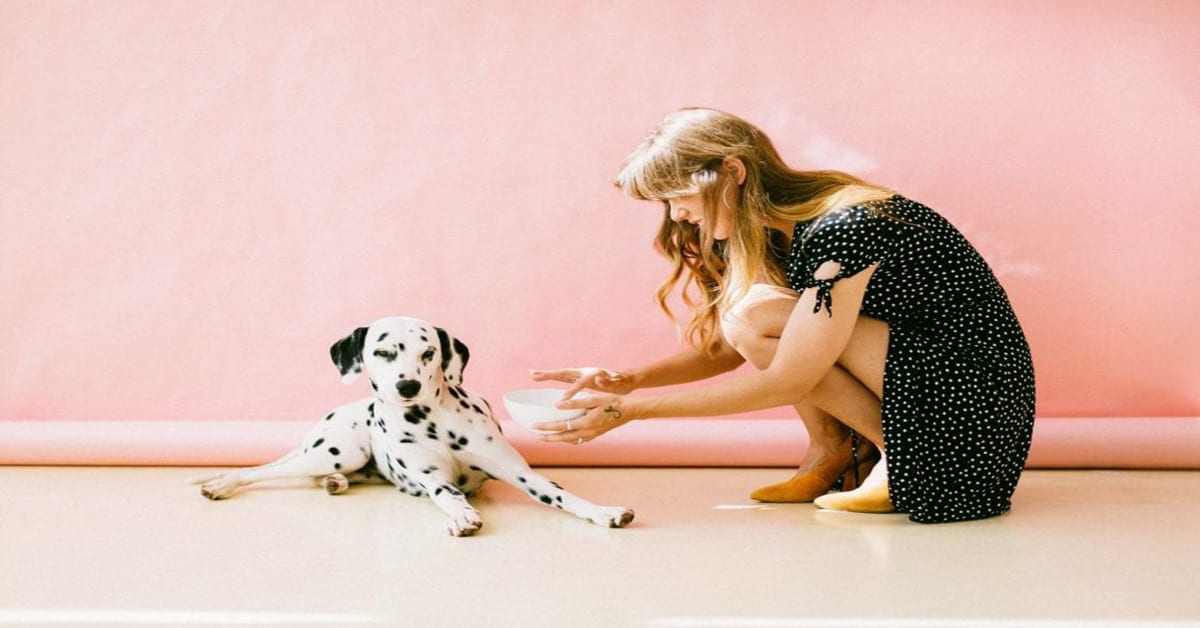Being a pet parent is one of the most fulfilling and stress-relieving decision a person can choose to do. Pets show affection in ways more profound than humans can. They are priceless in the companionship they offer to their parents.
Yes, I prefer the term pet parent over pet owner. Similar to humans, animals are sentient beings who should be chosen freely and raised lovingly. Pets can easily become a part of your family.
But it is not easy, being a pet parent. You accrue a lot of costs from getting your furry friend. Worse, they also live with a lot of waste.
But if you’re determined and committed to your sustainable living journey, you can make it work. You can find ways to be an eco-loving pet parent.
I interviewed fellow blogger Jen Sotolongo, about her experience raising her dog in an eco-friendly manner. Get inspired with her sustainable pet care tips from food to managing pet waste.
1. Tell me a little about yourself. Where do you live and work?
My name is Jen Sotolongo and I live in the Pacific Northwest in the United States. I have a three-year-old rescued cattle dog mix named Sitka and we love to run, hike, camp, and do pretty much anything outdoors together.
2. How did you start being a dog mom?
I had always wanted a dog, but my parents never did. We had cats growing up, so I became the neighborhood pet sitter. I became a dog mom when I began a relationship with a former partner who had two dogs. His Aussie, Sora and me fell hard for each other and she became the love of my life.
3. Do you have other pets?
Right now, I just have Sitka.
4. How do you live with pet/s?
My pets live in my house with me. I work from home, so we spend a lot of the day together. Usually, Sitka is lounging on his bed while I work. He sleeps on the bed with me at night and very kindly does not take up a lot of space!
5. How do you keep your house clean? How do you deal with pet hair and other dirt they incur while walking in and out of the house?
I have to sweep and vacuum a lot! I sweep daily, sometimes twice. I keep a towel by the door to wipe off his paws after a walk in the rain.
I think when you have pets, it’s just something you learn to deal with. There’s just going to be pet hair, no matter how many times a day you sweep.
6. How do you feed your pet/s? Discuss your eco-friendly pet food, if any.
I do mix of high quality kibble and homemade dog food. I prefer to make my pets’ food because then I know exactly what is in it. I vary the food regularly and sometimes feed vegetarian or vegan meals to reduce meat consumption, making certain they still get all of their nutrients, of course.
When I do buy meat, I try to buy the cuts that people don’t eat, like hearts, livers, and gizzards. If I’m purchasing commercial foods, I buy from locally-owned stores and try to purchase more wild meats like rabbit and bison, rather than beef and chicken.
7. How do you keep your pet/s happy? What pet toys do you use? Any eco-friendly toys?
I keep my pet happy by getting outdoors every day for trail runs or hikes. We practice obedience training and tricks daily. I also advocate for him and don’t put him in situations where he will feel the need to react to another dog or person. As an example, he doesn’t do well with on leash greetings, so I don’t allow them. Sometimes people get mad, but I have to put my dog first.
For toys, I love WestPaw, which are recyclable and made from recycled materials.
8. How do you deal with waste from pets?
My dog poops at least twice a day, sometimes three. If timed right, I can sometimes reopen a bag and get a twofer. On average, however, I’m going through at least 14 poop bags each week, and often more. Now think about all the other dogs whose poop is going in single-use plastic bags.

American dogs produce 10 million tons of dog poop annually – that’s enough to fill 3,800 trucks from Seattle to Boston according to DoodyCalls, a company that creates community dog waste bins.
The solution isn’t so simple. While some municipalities allow flushing of dog waste, it can wreak havoc on city pipes. Composting is an option in some cities, but most do not allow dog waste.
A handful of companies make biodegradable or compostable bag. However…
Most city waste facilities do not allow biodegradable bags in the system and they’re not allowed in the compost either. Sometimes trying doing the right thing just creates a bigger problem.
So, what’s an eco-loving dog owner to do?There are a few solutions:
- Compost or flush the poop if your city allows
- If you have a yard, use a metal scoop and bin to collect the waste in one bigger bag
- Reuse other plastic bags, like produce bags, newspaper bags, and grocery bags
9. What are your tips, for pet owners and prospective pet parents in being eco-loving with a furry friend?
Reuse plastic bags for poo. Really think about how much meat your dog consumes and purchase less agriculturally-heavy meat. Buy high-quality, durable toys that might cost more up front, but will last longer.
Get stuffed animals from Goodwill, they’re reused and cheaper. I use apple cider vinegar for flea and tick treatment rather than the chemicals sold by veterinarians.
10. Aside from eco-friendly pet care, what other sustainable habits do you practice in your daily life?
I am a long time vegan, so that’s a big part of my sustainable living. I also bike commute when I am in a city where it is safe to do so.
I don’t buy a lot of clothing or gear, rather, I buy a few high-quality items from brands putting in the work toward sustainability that I know will last longer.





I try to use my reusable totes as much as possible when grocery shopping but when I do grocery pick up they give me bags… so I donate them for doggy cleanup! 🙂
Living a zero-waste life is mine and my family’s mission for sure. We’re trying our best to reduce wastage